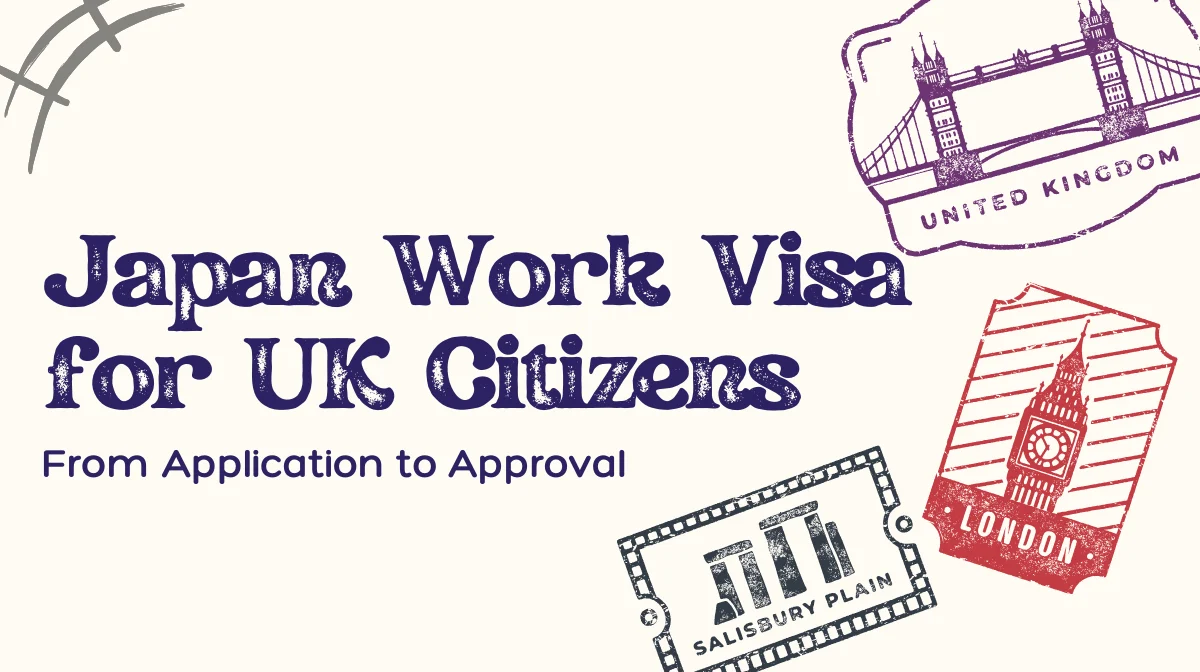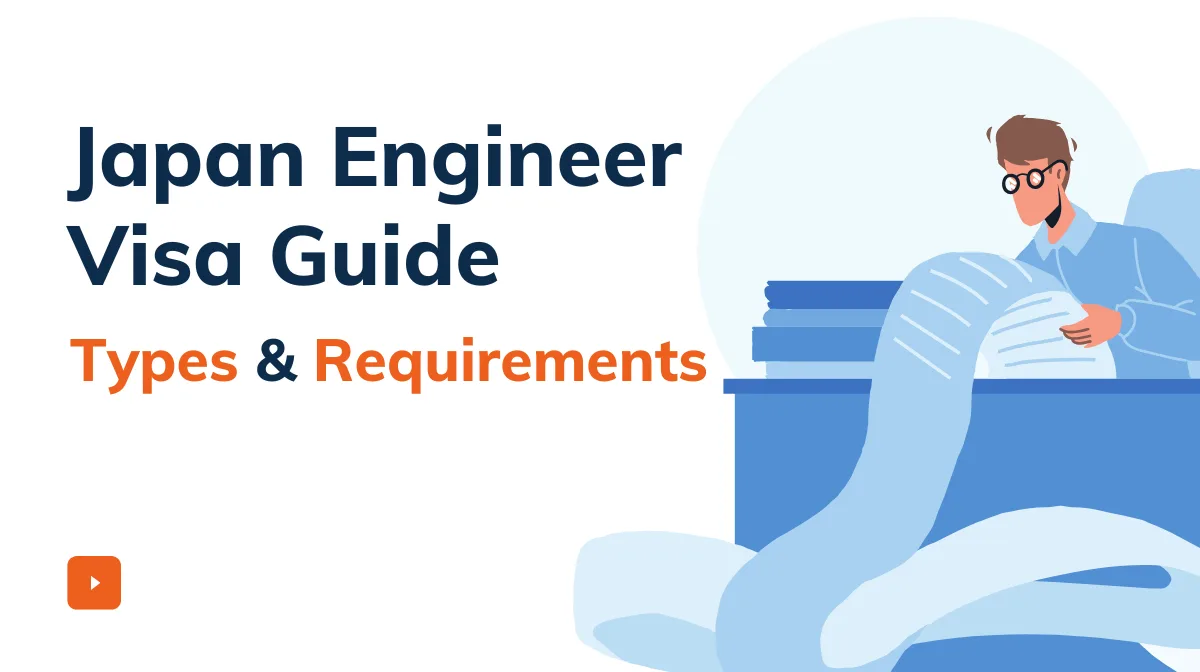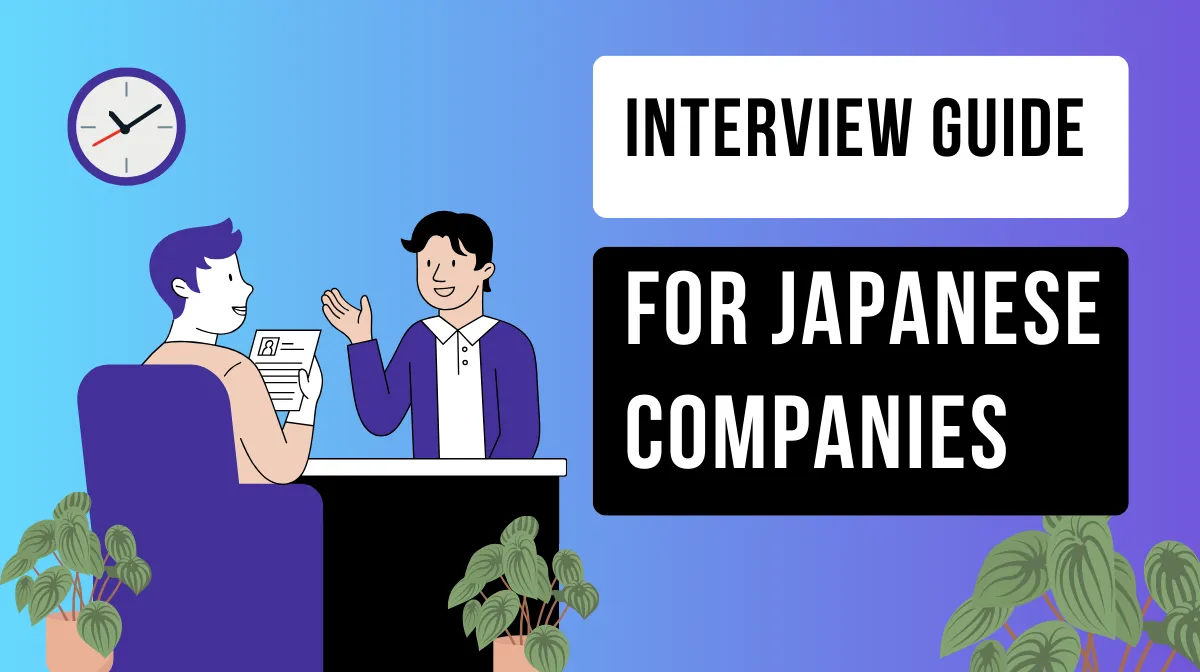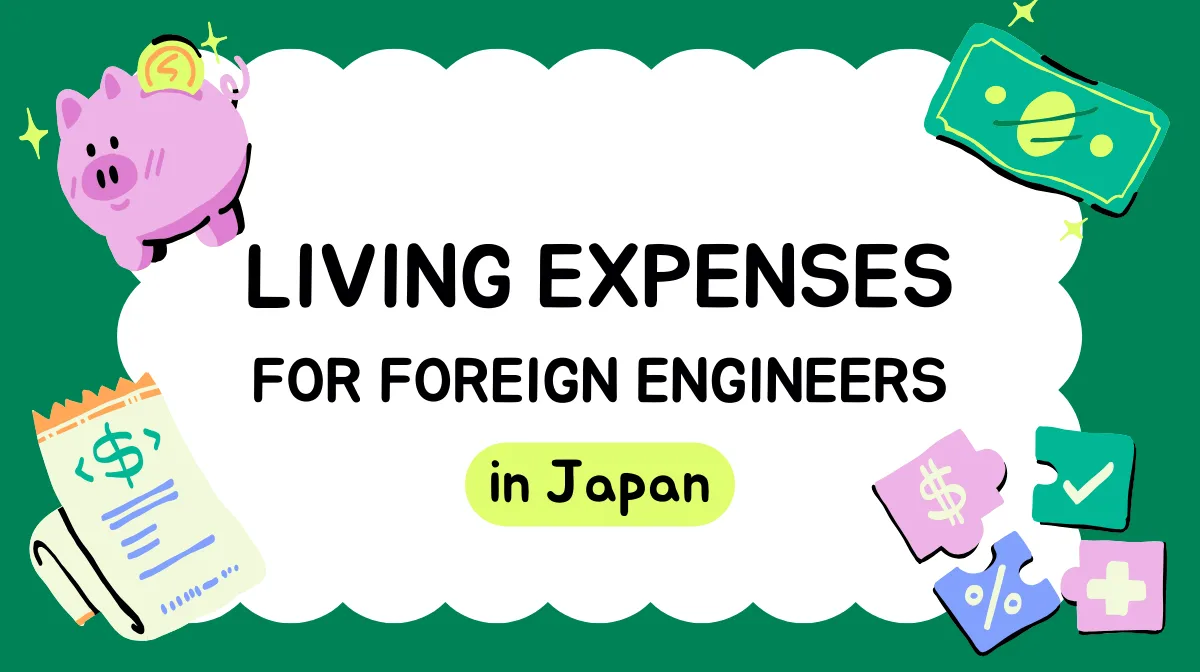British engineers have significant advantages when applying for Japan work visas. This guide covers leveraging the 90-day visa exemption, securing the Engineer/Specialist in Humanities/International Services visa, and navigating the complete application process.
- How to use 90-day visa exemption for Japan job hunting.
- COE application steps with required documents.
- Common visa failures and proven success solutions.
1. Japan Work Visa Requirements for UK Citizens
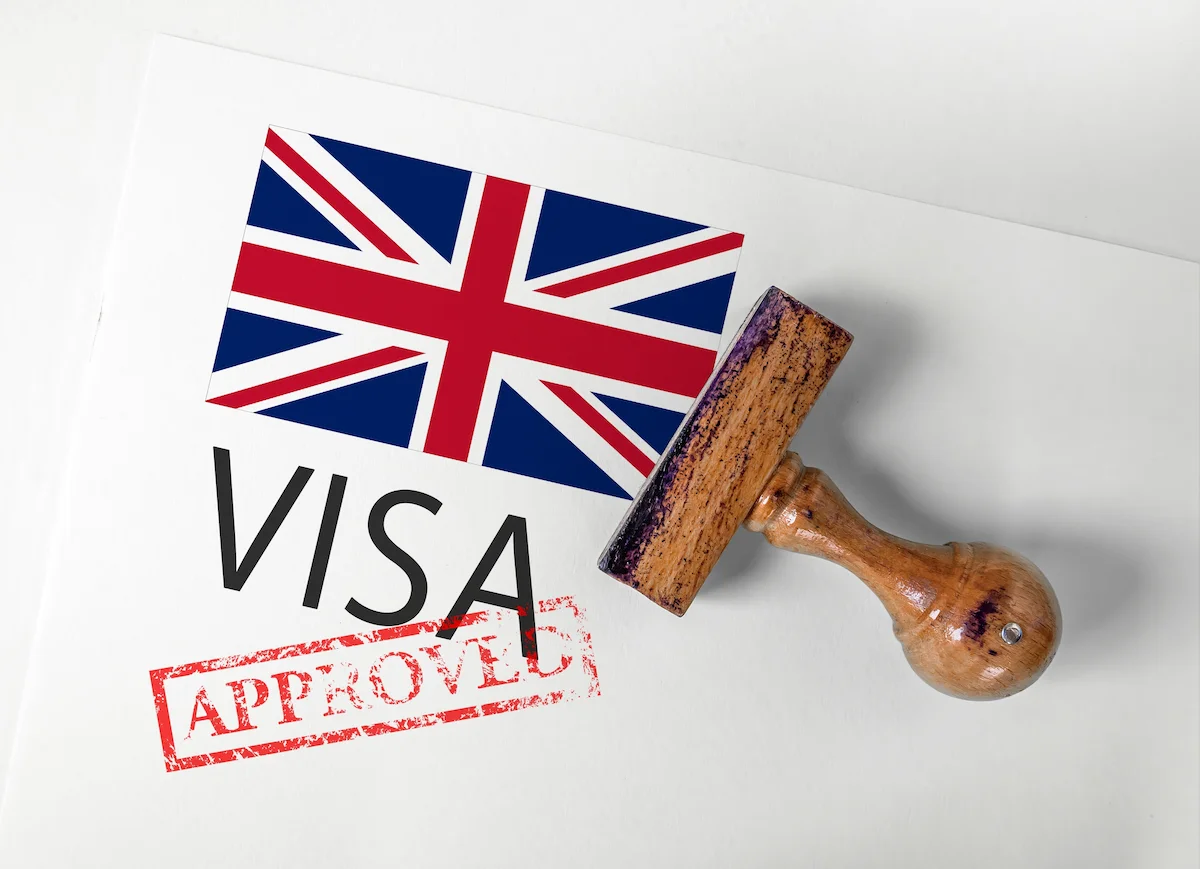
British engineers need work visas to work in Japan, but you have distinct advantages over other nationalities.
Special Advantages for British Engineers
Three Key Benefits for UK Citizens
- 90-day visa-free stay: Conduct interviews and company visits without initial visa requirements
- English language advantage: High demand in international business with excellent opportunities
- Strong technical reputation: UK IT education is highly valued by Japanese employers
Engineering roles benefit from Japan’s IT talent shortage. Japanese companies increasingly value British work approaches and work-life balance priorities.
Best Visa Option: Engineer/Humanities Visa
Japan offers 19 work visa categories, but the Engineer/Specialist in Humanities/International Services visa is optimal for British engineers. This visa covers programming, system design, database work, and related IT activities with clear application conditions.
It enables employment across various roles: system engineers, programmers, data scientists, and IT consultants. Initial visas are typically one year, extending to three or five years with stable employment.
2. UK Citizens’ Unique Japan Work Visa Benefits
The 90-day visa exemption is your most powerful advantage for visa acquisition.
Effective Use of 90-Day Visa Exemption
Strategic Uses of Your 90-Day Period
- Company interviews: Appeal personality and technical skills that online interviews cannot convey
- Workplace visits: Experience actual offices and work environments firsthand
- Post-offer preparation: Prepare COE documents and scout living areas
Interviewing multiple companies during short stays helps find optimal employment. Japanese companies value face-to-face meetings. In-person interviews increase job offer rates by approximately 30%.
However, paid activities are strictly prohibited during 90-day stays. While interviews and visits are permitted, trial work or internships violate regulations and damage future visa prospects.
■Related Reading
Understanding the complete visa landscape helps UK engineers make informed decisions about their career path.
■日本でエンジニアとしてキャリアアップしたい方へ
海外エンジニア転職支援サービス『 Bloomtech Career 』にご相談ください。「英語OK」「ビザサポートあり」「高年収企業」など、外国人エンジニア向けの求人を多数掲載。専任のキャリアアドバイザーが、あなたのスキル・希望に合った最適な日本企業をご紹介します。
▼簡単・無料!30秒で登録完了!まずはお気軽にご連絡ください!
Bloomtech Careerに無料相談してみる
3. Engineer/Specialist in Humanities/International Services Visa for UK Citizens
This visa targets foreign professionals using specialized university knowledge for intellectual work.
Why This Visa Works Best
Four Key Advantages
- Broad work compatibility: Covers programming, system design, data analysis, and IT work
- Clear academic requirements: UK university degrees (Bachelor’s or higher) easily meet conditions
- Flexible renewals: Progressive extensions from 1→3→5 years possible
- Job change flexibility: Simple procedures for moves within the same visa category
Since this is Japan’s most common work visa, Immigration Services Agency has extensive processing experience.
Work Scope
Engineering Activities:
System development, infrastructure management, data analysis, and quality control.
Humanities/International Services Activities:
IT consulting, project management, and international expansion support.
4. Academic and Career Requirements for UK Citizens
Academic background is crucial for Engineer/Humanities visas.
UK University Qualification Recognition
Recognized UK Degrees
- Bachelor’s Degree: Recognized regardless of 3-year or 4-year programs
- Master’s Degree: Recognized as equivalent to Japanese master’s
- PhD: Recognized as highest degree level
UK 3-year Bachelor’s degrees equal Japanese 4-year university graduation based on Ministry of Education criteria.
Potentially Problematic:
Foundation Course completion, Higher National Diploma, and some distance/online degrees may not be recognized.
Applications require graduation certificates and transcripts. English documents need no translation, but originals or apostille-certified copies are required.
Special Academic Exemptions
IT Qualification Exemptions
Minister of Justice-designated IT qualifications substitute for academic requirements, including Fundamental IT Engineer, Applied IT Engineer, Security Specialist, Systems Architect, and Project Manager examinations. These Japanese-language exams are challenging but provide complete academic substitution.
10-Year Experience Alternative
Ten years of IT-related experience can substitute for degrees, requiring strict documentation of specialized technical knowledge.
Proving Academic-Professional Relationships
Strong Relationship Majors:
Computer Science, Mathematics, Physics, Electronics have direct relationships with IT work.
Strategic Relationship Building
Business/Management (IT consulting), Economics (fintech, data analysis), Psychology (UI/UX design).
Effective Proof Methods
- Detailed coursework documentation highlighting Programming, Statistics, Database courses
- Graduation thesis presenting IT-related research
- Additional learning evidence including programming certificates
- Portfolio demonstrating actual applications created
■日本でエンジニアとしてキャリアアップしたい方へ
海外エンジニア転職支援サービス『 Bloomtech Career 』にご相談ください。「英語OK」「ビザサポートあり」「高年収企業」など、外国人エンジニア向けの求人を多数掲載。専任のキャリアアドバイザーが、あなたのスキル・希望に合った最適な日本企業をご紹介します。
▼簡単・無料!30秒で登録完了!まずはお気軽にご連絡ください!
Bloomtech Careerに無料相談してみる
5. Salary and Employment Standards for UK Citizens
You must demonstrate treatment equal to or better than Japanese employees.
Equal Compensation Requirements
The visa mandates “compensation equal to or better than Japanese people” Regional variations see Tokyo at 110-120% of standard rates, with actual screening emphasizing comparison within the same company.
Compensation Inclusion/Exclusion
| Included | Basic salary, technical allowances, bonuses, overtime pay |
|---|---|
| Excluded | Commuting/housing allowances, family allowances, welfare expenses |
Employment Contract Essentials
Job Description Requirements:
Specific duties (“Web application development” not “general IT work”), technical specifications (Java, React, AWS), and defined work ratios.
Suspension Clauses:
Many companies include clauses making contracts effective only upon visa acquisition, protecting both parties.
■Related Reading
Explore comprehensive salary information to negotiate competitive compensation packages in Japan’s IT market.
6. Company Eligibility for Hiring UK Citizens
Company acceptance systems significantly impact screening outcomes.
Company Size Categories
Immigration Services Agency categorizes companies into four groups:
Categories and Success Rates
- Category 1-2 (Large companies/Government): ~95% approval
- Category 3 (Medium companies): ~85% approval
- Category 4 (Small/New companies): ~70% approval
Many startups fall into Category 4, requiring careful business plan preparation.
Employment Track Record Impact
Positive Indicators:
Continuous foreign employment with proper management, high renewal rates (90%+), regulatory compliance.
Problematic History
Previous workers disappearing, unauthorized activities, employment violations.
7. COE Application Process for UK Citizens
COE application is the critical procedure for work visa acquisition.
Required Documents from UK
Academic Credentials
Graduation certificate, academic transcript, university letter (optional).
Identity Documentatio
Criminal record certificate (DBS), passport copies, identification photos (4cm×3cm, white background).
Employment History
Employment and salary certificates from previous employers (if applicable).
Application Tips
Form Completion
Name notation must match passport completely, birth date in Western format, accurate UK address.
Reason Statement Structure
Japan purpose connecting studies to planned work, academic-professional relationship with specific course connections, company selection rationale, and brief career plans.
Screening Process
COE screening takes 1-3 months. Additional document requests arrive 2-4 weeks post-application with 2-week response deadlines.
Post-COE Procedures
Content verification, UK mailing, embassy appointment scheduling, document preparation, interview, and Japan travel within 3-month validity.
8. UK Citizens’ Visa Application and Entry
After COE acquisition, apply at Japanese Embassy (London) or Consulate-General (Edinburgh).
Embassy Application
Required Documents
Visa application form, original passport (6+ months validity), original COE, identification photo (4.5cm×4.5cm). Applications are free for COE-based cases.
Japan Entry
Complete immigration screening and residence card acquisition at airports (30 minutes to 1 hour). Recording errors require correction within 14 days.
■Related Reading
Master essential preparation strategies to successfully navigate the Japanese job application process.
9. Special Cases for UK Citizens
Once working in Japan, you may encounter situations requiring visa modifications. Job changes, freelancing, and family invitations need careful handling to maintain visa status.
Job Changes
Job changes require Employment Qualification Certificate applications for major duty/industry changes. Legally mandated reporting is required, with 3-month rule for new employment after resignation.
Freelancing
Possible under specific conditions with business contracts, dispatch contracts, or advisory contracts. Multiple company work requires outside-status permissions.
Family Visas
Eligible for spouses (legal marriage) and children (unmarried under 20) with 1+ years employment, sufficient income, and suitable housing.
■Related Reading
Learn about the complete process of working successfully in Japan from visa application to daily life setup.
10. Common Failures and Solutions for UK Citizens

Understanding typical visa application failures helps avoid costly mistakes. These proven solutions address the most frequent rejection reasons for British engineers.
Five Main Failure Causes
Insufficient Academic-Professional Relationship:
Solutions include detailed coursework explanations, thesis utilization, additional learning proof, and portfolio creation.
Inadequate Company Systems:
Solutions involve detailed business planning, foreign hiring necessity documentation, and financial improvement plans.
Document Deficiencies:
Prevention through multiple verification, original cross-referencing, and professional review.
Inappropriate Salary Levels
Solutions include market research, compensation clarification, and salary increase planning.
Interview Issues
Success through clear motivation, realistic planning, and basic Japanese learning.
Engineering-Specific Challenges
Technology Evolution:
Address through continuous learning documentation and fundamental technology relationships.
Open Source Development:
Position as skill improvement and industry standard practices.
Remote Work:
Clarify primary workplace and working conditions in contracts.
Success Stories
Computer Science Graduate
Succeeded through perfect major match, Japanese learning, and internship experience.
Liberal Arts Conversion
Economics major became data scientist through statistics utilization and rich portfolio.
Job Change Success
Managed complex procedures through prior certificate acquisition and careful documentation.
11. Japan Work Visa Success for UK Citizens
British engineers have strong advantages for Japan work visas. Use your 90-day visa-free entry for job hunting and leverage high English demand.
The Engineer/Specialist in Humanities/International Services visa is optimal. Success requires proving academic-work relationships, securing proper employment terms, and thorough COE preparation.
In-person interviews boost success by 30%. Large companies have 95% approval rates versus 70% for startups. With proper preparation, UK citizens can successfully obtain Japan work visas.
■Related Reading
Understand practical living costs and financial planning for your new career in Japan’s tech industry.

